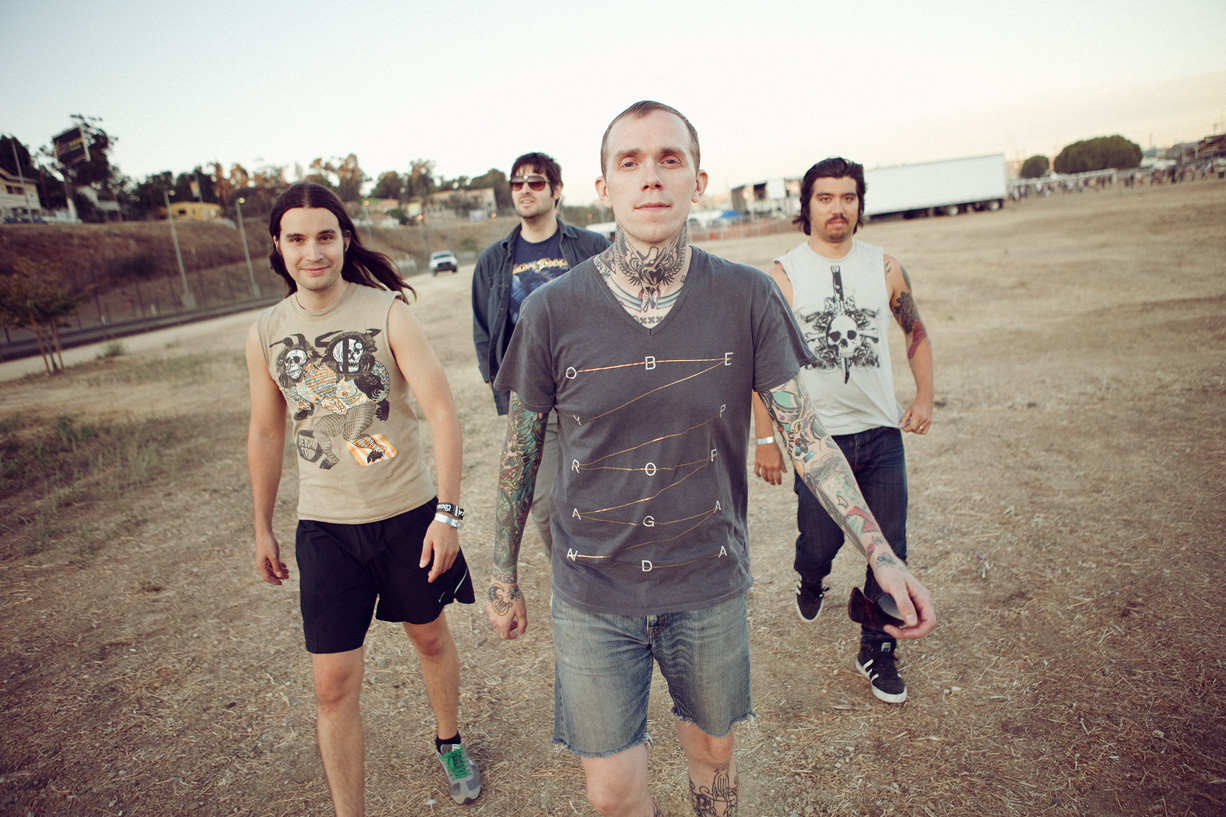Jacob Bannon, lead singer and founding member of Converge, is a man who likes a challenge. In fact, “challenge” seems to be his favorite word; it crops up again and again—how Converge seeks them out, how the band provides them, and how we need them as human beings. Ease is a dirty word in Converge’s universe.
The band’s music is, of course, challenging. Not content to be just fast, brutal, and dark, Converge has consistently, and successfully, pushed every boundary in any category you wish to place it: hardcore, metal, thrash, punk. None of these will fit neatly on Converge.
In Bannon’s own words, “We’re not an easy band to get into. We’re a very abrasive band, very harsh band, a very polarizing band. If somebody’s used to contemporary metal records [and] they hear a band like us, it’s just a big load of trashy noise. If a punk kid hears our band now, he’s used to big singing choruses, pop punk, emotional rock, [and] we’re way too off-putting; we’re vocally way too harsh. That’s not necessarily a bad thing.” (This is what John Darnielle means when he says that metal-core “craves marginalization.”)
This approach has borne some dark and spectacular fruit for Converge. The only way in which it might be considered dull is in the consistency of its critical acclaim. Album after album over the past 15 years has found the band red-lining various critical meters — 10 stars, six skulls, eight guitars, whatever — with its champions escalating in number since the release of its breakthrough, Jane Doe.
That album shellacked Converge’s status as cult gods; it was immediately a touchstone for the hardcore-punk community. Not that it matters to them: “If there’s any key to longevity,” Bannon says, “it’s this: don’t give a shit about what other people think.”
Axe to Fall again finds Converge redefining the game. The band brought in some heavy hitters from around the hardcore and metal communities — members of Cave In, Disfear, and Neurosis pitched in — partly because, as Bannon explains, “Even though [the members of Converge] all come from different places, we’re still very used to working together.
Having these outside people involved made the process longer, more complex. Introducing some other people into something that’s…so comfortable almost forces you to become challenged.”
Showcasing both sides of their famously split musical genetics, the first track “Dark Horse” opens with a freakishly speedy, I-can’t-feel-my-face drum and guitar attack and grafts on the stop-start blasts of hardcore. For the listener, it’s something like being bolted to a giant paint shaker. Axe to Fall gets sludgier about halfway through, but Converge mostly keeps to the quick attack, resisting the prog impulses of some of their colleagues in favor of precision and ferocity.
There’s a clarity and simplicity to it, with each element — Koller’s impossible drumming, Bannon’s intensity, Ballou’s frenzied riffs — showing in high relief against the others. Not only does the entire album command attention, but each part of it commands attention.
As bassist Nate Newton says (in an interview on Converge’s site), “My favorite records over the years were records that—they challenged you. You had to listen to it; you couldn’t just put it on and have it in the background, like ‘Oooh, I love it.’”

